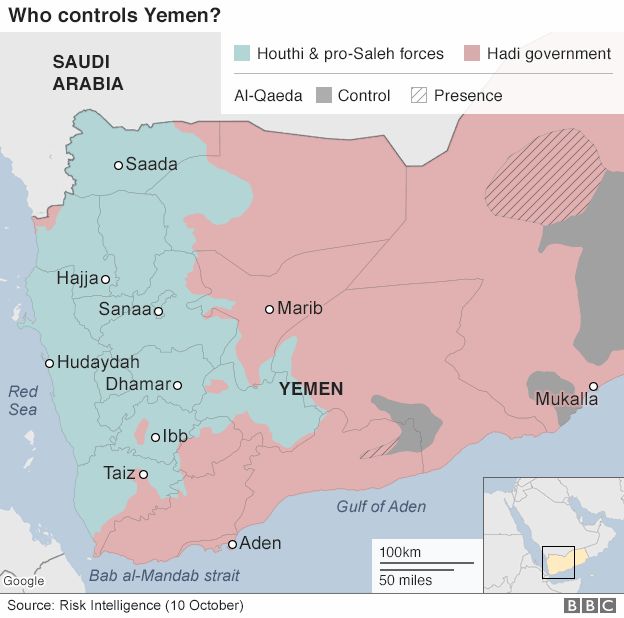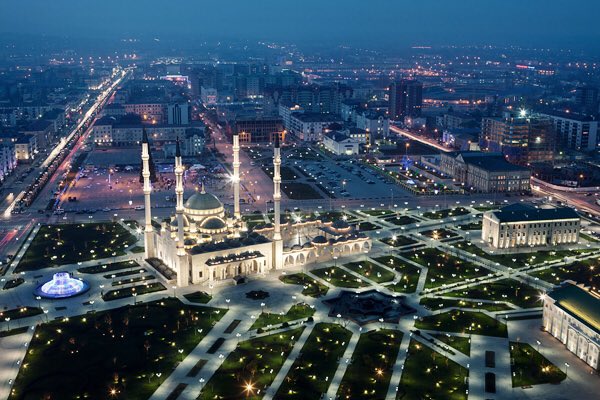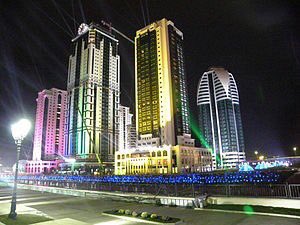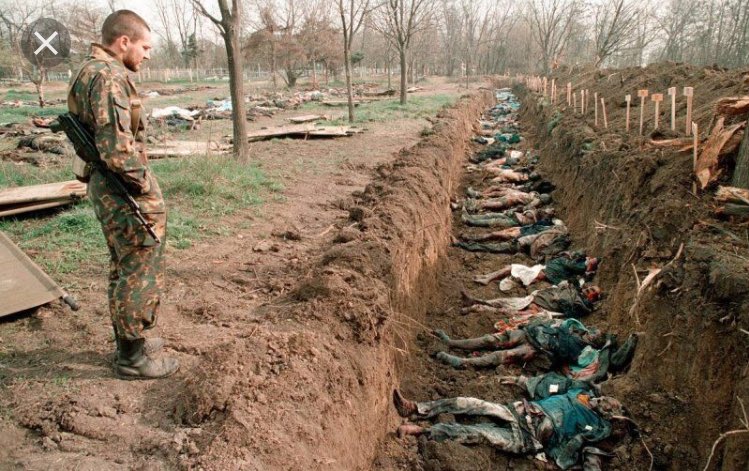October 14, 2016
SUBJECT: United States-Cuba Normalization
I. Introduction
On December 17, 2014, I announced that the United States would chart a new course with Cuba, ending an outdated policy that had failed to advance U.S. interests and support reform and a better life for the Cuban people on the island over several decades. Under the new policy, the United States expands and promotes authorized engagements with Cuba to advance cooperation on areas of mutual interest, and increase travel to, commerce with, and the free flow of information to Cuba. The objective of the new policy is to help the Cuban people to achieve a better future for themselves and to encourage the development of a partner in the region capable of working with the United States to confront regional challenges, such as climate change, disease, and illicit trafficking.
Endogenous changes underway in Cuba offer opportunities to advance U.S. interests and shift away from an embargo, which is an outdated burden on the Cuban people and has impeded U.S. interests. My Administration has repeatedly called on the Congress to lift the embargo. United States policy is designed to create economic opportunities for the Cuban people; promote respect for human rights; further advances on regional security and defense issues, such as health, law enforcement, and migration; and pursue cooperation with the Cuban government that can strengthen our leadership in the hemisphere. We recognize Cuba’s sovereignty and self-determination and acknowledge areas of difference. We seek to address such differences through engagement and dialogue, and by encouraging increased understanding between our governments and our peoples.
The large Cuban-American community in the United States has an integral role to play in normalization, and in reconciliation between members of the diaspora who left Cuba and those who remain on the island. Normalization necessarily extends beyond government-to-government rapprochement — it includes rebuilding bridges between individuals and families.
This directive: (1) describes the U.S. vision for normalization with Cuba and how our policy aligns with U.S. national security interests; (2) assesses progress toward normalization; (3) describes the current and foreseen strategic landscape; (4) describes priority objectives for normalization; and (5) directs actions required to implement this PPD.
II. Vision for United States-Cuba Normalization
The vision of the United States for U.S.-Cuba normalization is guided by the following national security interests, as described in the 2015 National Security Strategy:
- The security of the United States, its citizens, and U.S. allies and partners.
- A strong, innovative, and growing U.S. economy in an open international economic system that promotes opportunity and prosperity.
- Respect for universal values at home and around the world.
- A rules-based international order that promotes peace, security, and opportunity.
Our vision for U.S.-Cuba normalization reflects my Administration’s support for broad-based economic growth, stability, increased people-to-people ties, and respect for human rights and democratic values in the region. In the long-term, the United States seeks the following end-states:
1. Enhanced security of the United States and U.S. citizens at home and abroad. We seek to ensure U.S. citizens traveling to Cuba are safe and secure and the United States is protected from: those seeking to exploit increased connectivity for illicit ends, irregular migration, and natural or man-made hazards. Our policy advances bilateral cooperation in areas of mutual interest, including diplomatic, agricultural, public health, and environmental matters, as well as disaster preparedness and response, law enforcement, migration, and other security and defense topics. Our policy also supports increased cooperation with Cuba on regional initiatives on behalf of these interests.
2. A prosperous, stable Cuba that offers economic opportunities to its people. Increased travel and economic interconnectedness supports improved livelihoods for the Cuban people, deeper economic engagement between our two countries, as well as the development of a private sector that provides greater economic opportunities for the Cuban people. Efforts by the Cuban authorities to liberalize economic policy would aid these goals and further enable broader engagement with different sectors of the Cuban economy. United States policy helps U.S. businesses gain access to Cuban markets and encourages the sustainable growth of the Cuban economy. The U.S. private sector, scientific and medical researchers, agriculture industry, foundations, and other groups have new avenues for collaboration that can provide opportunities for Cuban entrepreneurs, scientists, farmers, and other professionals. At the same time, increased access to the internet is boosting Cubans’ connectivity to the wider world and expanding the ability of the Cuban people, especially youth, to exchange information and ideas. The United States is prepared to support Cuban government policies that promote social equality and independent economic activity.
3. Increased respect for individual rights in Cuba. Even as we pursue normalization, we recognize we will continue to have differences with the Cuban government. We will continue to speak out in support of human rights, including the rights to freedoms of expression, religion, association, and peaceful assembly as we do around the world. Our policy is designed to support Cubans’ ability to exercise their universal human rights and fundamental freedoms, with the expectation that greater commerce will give a broader segment of the Cuban people the information and resources they need to achieve a prosperous and sustainable future. In pursuit of these objectives, we are not seeking to impose regime change on Cuba; we are, instead, promoting values that we support around the world while respecting that it is up to the Cuban people to make their own choices about their future.
4. Integration of Cuba into international and regional systems. We seek Cuban government participation in regional and international fora, including but not limited to, those related to the Organization of American States (OAS) and Summit of the Americas to advance mutually held member objectives. We believe that a Cuba that subscribes to the purposes and standards of such fora will benefit, over time, from bringing its domestic economic and political practices in line with international norms and globally accepted standards. Our policy strengthens the U.S. position in international systems by removing an irritant from our relationships with our allies and partners and gaining support for a rules-based order.
III. Progress Toward United States-Cuba Normalization
Since the United States announced on December 17, 2014, that it would chart a new course with Cuba, we have re-established diplomatic relations and have made progress toward the normalization of our bilateral relationship. We opened our respective embassies, six U.S. cabinet secretaries visited Havana, four Cuban ministers visited the United States, and I became the first sitting U.S. President to visit Cuba since 1928. We established a Bilateral Commission to prioritize areas of engagement, and we concluded non-binding arrangements on environmental protection, marine sanctuaries, public health and biomedical research, agriculture, counternarcotics, trade and travel security, civil aviation, direct transportation of mail, and hydrography. We launched dialogues or discussions on law enforcement cooperation, regulatory issues, economic issues, claims, and internet and telecommunications policy.
Given Cuba’s proximity to the United States, increased engagement by U.S. citizens, companies, and the nongovernmental sector holds extraordinary promise for supporting our national interests. Bearing in mind the limits imposed by the Cuban Liberty and Democratic (LIBERTAD) Solidarity Act of 1996 (“Libertad Act”) and other relevant statutes, the Departments of the Treasury and Commerce implemented six packages of regulatory amendments to the Cuba sanctions program, easing restrictions on travel, trade, and financial transactions. United States individuals, firms, and nongovernmental organizations are availing themselves of these regulatory changes to visit Cuba, and authorized travel to Cuba increased by more than 75 percent from 2014 to 2015. Future U.S. citizen travel will be supported by scheduled air service, which began in August 2016, and the first U.S. cruise liner visited Cuban ports in May 2016. We also commenced direct transportation of mail between our two countries, and U.S. telecommunications firms established direct voice and roaming agreements with Cuba. For its part, the Cuban government has continued to pursue incremental economic reforms and launched more than 100 public Wi-Fi hotspots across the island.
These developments lay the foundation for long-term engagement with Cuba that advances U.S. interests. But we have a great deal more to do to build on that foundation based on a realistic assessment of the strategic landscape surrounding normalization.
IV. Strategic Landscape
Cuba is experiencing several transitions in areas such as leadership, the economy, technological development, civil society, and regional and global integration. Cuba’s leaders recognize the need to transition to the next generation, but they prioritize gradual, incremental changes to ensure stability.
Cuba has important economic potential rooted in the dynamism of its people, as well as a sustained commitment in areas like education and health care. Yet the Cuban government faces significant economic challenges, including eliminating its dual-exchange-rate system, making its state-run enterprises more efficient and transparent, developing a financial system that provides expanded services to individuals and the private sector, and reducing its reliance on foreign subsidies. Cuba remains highly dependent on food and energy imports, yet must cope with limited sources of hard currency to pay for import needs. Significant emigration of working age Cubans further exacerbates Cuba’s demographic problem of a rapidly aging population.
A series of statutes limits U.S. economic engagement with Cuba, precluding a complete lifting of restrictions on U.S. travel to Cuba, prohibiting United States Government export assistance and the provision of U.S. credit for Cuban purchases of agricultural commodities, and requiring that the embargo not be suspended or terminated unless the President determines that a transition or democratically elected government has come to power in Cuba.
Due to Cuba’s legal, political, and regulatory constraints, its economy is not generating adequate foreign exchange to purchase U.S. exports that could flow from the easing of the embargo. Even if the U.S. Congress were to lift the embargo, Cubans would not realize their potential without continued economic reform in Cuba. Cuban government regulations and opaque procurement practices hamper transactions with U.S. companies that would be permitted under U.S. law.
Normalization efforts have raised Cubans’ expectations for greater economic opportunities. With an estimated 1 in 4 working Cubans engaged in entrepreneurship, a dynamic, independent private sector is emerging. Expansion of the private sector has increased resources for individual Cubans and created nascent openings for Cuban entrepreneurs to engage with U.S. firms and nongovernmental organizations. We take note of the Cuban government’s limited, but meaningful steps to expand legal protections and opportunities for small- and medium-sized businesses, which, if expanded and sustained, will improve the investment climate.
Cuba is not a member of international financial institutions (IFIs), such as the International Monetary Fund, the World Bank, and the Inter-American Development Bank, which could provide expertise and potentially finance economic reforms and viable investment projects.
Although Cuba has reached agreement with several creditor nations on bilateral debt relief through restructuring and forgiveness, it remains in default to the United States Government on pre-Cuban revolution bilateral debts and does not participate in international capital markets. Cuba and the United States are both members of the World Trade Organization (WTO); however, neither country applies the agreement to the other because of the U.S. embargo toward Cuba.
Rapprochement has enabled us to increase our engagement with Cuba on regional issues such as the Colombia peace process and healthcare in Haiti, and has undermined an historic rallying point for regimes critical of the United States. Although Cuba has expressed no interest in participating in the OAS, it did attend the Summit of the Americas in 2015. We also welcome engagement between Cuba and other U.S. allies from around the world, including our European and Asian treaty allies. At the same time, we recognize that Cuba and the United States will continue to have differences on many regional and global issues.
U.S. engagement with the Cuban government will also be constrained by Cuba’s continued repression of civil and political liberties. We anticipate the Cuban government will continue to object to U.S. migration policies and operations, democracy programs, Radio and TV Marti, the U.S. presence at the Guantanamo Bay Naval Station, and the embargo. The United States Government has no intention to alter the existing lease treaty and other arrangements related to the Guantanamo Bay Naval Station, which enables the United States to enhance and preserve regional security.
In this strategic environment, the policies and actions the United States pursues to advance our vision for U.S.-Cuba normalization will significantly shape the future of bilateral and regional relations, as well as our shared security and prosperity.
V. Six U.S. Objectives for the Medium-Term U.S.-Cuba Relationship
To advance the four end-state goals associated with our strategic vision for U.S.-Cuba normalization, the United States will move concurrently on the following six priority objectives:
1. Government-to-Government Interaction
We will continue high-level and technical engagement in areas of mutual interest, including agriculture, the economy and small businesses, transportation, science and technology, environment, climate, health, law enforcement, migration, national security, disaster preparedness and response, and counterterrorism. Through the Bilateral Commission, we will identify and prioritize areas of collaboration and engagement that advance our end-state goals. Stronger diplomatic ties will enable constructive engagement on bilateral differences, including our democracy and broadcasting programs, while protecting our interests and assets, such as the Guantanamo Bay Naval Station. We will utilize engagement to urge Cuba to make demonstrable progress on human rights and religious freedom. As the United States and Cuban governments build trust through more frequent engagement, we will increasingly conduct working-level interactions between Cuban ministries and U.S. agencies and departments that lessen the need for high-level conversations on routine matters. Given the lack of diplomatic relations over the past several decades, we will seek broad engagement across the Cuban government, including ministries and local officials. When appropriate and legally available, we will engage with Cuba to normalize trade relations fully.
2. Engagement and Connectivity
The United States will continue to encourage people-to-people linkages through government and privately sponsored exchanges, including those involving educational, cultural, business, science, environment, technology, and sports. As permitted by law, we will continue to support the development of scheduled and chartered air service and maritime links, including ferries. An ongoing partnership with the Cuban-American community is of particular importance given Cuban-Americans’ strong family and socio-cultural ties, as well as their natural role as citizen-ambassadors. We will facilitate opportunities for Cuban-Americans to rebuild and create new bonds with family to support reconciliation. To facilitate Cuba’s goal of increasing its internet access from 5 percent to 50 percent of the population by 2020, we will seek the establishment of a bilateral working group to expand internet connectivity. We will seek opportunities that enable U.S. foundations and universities to establish linkages with Cuba.
3. Expanded Commerce
The United States Government will seek to expand opportunities for U.S. companies to engage with Cuba. The embargo is outdated and should be lifted. My Administration has repeatedly called upon the Congress to lift the embargo, and we will continue to work toward that goal. While the embargo remains in place, our role will be to pursue policies that enable authorized U.S. private sector engagement with Cuba’s emerging private sector and with state-owned enterprises that provide goods and services to the Cuban people. Law enforcement cooperation will ensure that authorized commerce and authorized travelers move rapidly between the United States and Cuba. Although we recognize the priority given to state-owned enterprises in the Cuban model, we seek to encourage reforms that align these entities with international norms, especially transparency.
United States regulatory changes have created space for the Cuban government to introduce comparable changes. In tandem with the Department of the Treasury’s regulatory change to expand Cuba’s access to the U.S. financial system and U.S. dollar transit accounts, the Cuban government announced in early 2016 plans to eliminate the 10 percent penalty on U.S. dollar conversion transactions, subject to improved access to the international banking system. We will sustain private and public efforts to explain our regulatory changes to U.S. firms and banks, Cuban entrepreneurs, and the Cuban government.
4. Economic Reform
While the Cuban government pursues its economic goals based on its national priorities, we will utilize our expanded cooperation to support further economic reforms by the Cuban government. Recent exchanges among financial service institutions and regulators have provided greater mutual understanding of our respective financial system and economic priorities. We will undertake government-to-government dialogues to discuss options for macro- and microeconomic reform, with the goal of connecting the changes in U.S. policy with Cuban reforms in a manner that creates opportunity for U.S. firms and the Cuban people.
If and when the Congress lifts the embargo, my Administration will engage with the Congress and stakeholders on preparatory commercial and economic exchanges and dialogues. My Administration would then similarly engage the Congress on the substance and timing of a new bilateral commercial agreement to address remaining statutory trade requirements.
5. Respect for Universal Human Rights, Fundamental Freedoms, and Democratic Values
We will not pursue regime change in Cuba. We will continue to make clear that the United States cannot impose a different model on Cuba because the future of Cuba is up to the Cuban people. We seek greater Cuban government respect for universal human rights and fundamental freedoms for every individual. Progress in this area will have a positive impact on the other objectives. We will encourage the Cuban government to respect human rights; support Cuba’s emerging, broad-based civil society; and encourage partners and nongovernmental actors to join us in advocating for reforms. While remaining committed to supporting democratic activists as we do around the world, we will also engage community leaders, bloggers, activists, and other social issue leaders who can contribute to Cuba’s internal dialogue on civic participation. We will continue to pursue engagements with civil society through the U.S. Embassy in Havana and during official United States Government visits to Cuba. We will seek to institutionalize a regular human rights dialogue with the Cuban government to advance progress on human rights. We will pursue democracy programming that is transparent and consistent with programming in other similarly situated societies around the world. We will utilize our increased ability to engage regional partners, both bilaterally and through regional bodies, to encourage respect for human rights in Cuba. We will consult with nongovernmental actors such as the Catholic Church and other religious institutions. Finally, we will work with the European Union and likeminded international organizations and countries to encourage the Cuban government to respect universal values.
6. Cuban Integration into International and Regional Systems
We will expand dialogue with Cuba in the organizations in which it already holds membership, such as the WTO and the World Customs Organization (WCO), and we will encourage Cuba to move toward rules-based engagement, subject to statutory requirements. We will encourage Cuba to bring its legal framework, particularly its commercial law, in line with international standards. We will encourage Cuba to meet WCO standards for supply chain security. To the extent permitted by and consistent with applicable law, we will facilitate integration into international bodies, including through the use of technical assistance programs. We will pursue cooperation with Cuba on regional and global issues (e.g., combating the Ebola outbreak and the Colombia peace process). Ending the embargo and satisfying other statutory requirements relating to trade will allow the United States to normalize trade relations with Cuba.
VI. Policy Implementation
1. Roles and Responsibilities
To facilitate the effective implementation of this directive, departments and agencies will have the following roles and responsibilities, consistent with the relevant legal authorities and limits:
The National Security Council (NSC) staff will provide ongoing policy coordination and oversight of the implementation of this PPD and the overall Cuba strategy as necessary.
The Department of State will continue to be responsible for formulation of U.S. policy toward and coordination of relations with Cuba. This includes supporting the operations of Embassy Havana and ensuring it has adequate resources and staffing. Other responsibilities include the issuance of nonimmigrant and immigrant visas, refugee processing, promotion of educational and cultural exchanges, coordination of democracy programs, and political and economic reporting. State will continue to lead the U.S.-Cuba Bilateral Commission and coordinate a number of dialogues, such as the Law Enforcement Dialogue, annual migration talks, and meetings to resolve outstanding claims.
State will continue to co-lead efforts with the U.S. Agency for International Development to ensure democracy programming is transparent and consistent with programming in other similarly situated societies. State will coordinate efforts to advance science and technology cooperation with Cuba. State will support telecommunications and internet access growth in Cuba and provide foreign policy guidance to the Departments of Commerce and the Treasury on certain exports, financial transactions, and other license applications.
The U.S. Mission to the United Nations (USUN), in coordination with State, will oversee multilateral issues involving Cuba at the United Nations. USUN will identify areas of possible collaboration with Cuba that could help foster a more collaborative relationship between the United States and Cuba at the United Nations. The USUN will also participate in discussions regarding the annual Cuban embargo resolution at the United Nations, as our bilateral relationship continues to develop in a positive trajectory.
The Department of the Treasury is responsible for implementation of the economic embargo restrictions and licensing policies. The Treasury will continue its outreach to help the public, businesses, and financial institutions understand the regulatory changes. The Treasury will continue to review and respond to public questions and feedback on regulations and public guidance that could be further clarified and to discuss with State any novel license requests that the Treasury receives from the public to determine whether such requests are consistent with the regulatory changes and existing law. The Treasury will make use of available channels for bilateral dialogue to understand Cuba’s economic and financial system and encourage reforms and will continue to engage in dialogue with the Cuban government about our regulatory changes.
The Department of Commerce will continue to support the development of the Cuban private sector, entrepreneurship, commercial law development, and intellectual property rights as well as environmental protection and storm prediction. If statutory restrictions are lifted, Commerce will promote increased trade with Cuba by providing export assistance to U.S. companies. In the meantime, Commerce will continue a robust outreach effort to ensure that U.S. companies understand that U.S. regulatory changes provide new opportunities to obtain licenses or use license exceptions to increase authorized exports to Cuba, including to Cuban state-owned enterprises that provide goods and services to meet the needs of the Cuban people. Additionally, Commerce will continue to engage in dialogue with the Cuban government about our regulatory changes, as well as the need for simplification of the Cuban import process, transparency in Cuban business regulations, and other steps that will lead to full realization of the benefits of our regulatory changes.
The Department of Defense (DOD) will continue to take steps to expand the defense relationship with Cuba where it will advance U.S. interests, with an initial focus on humanitarian assistance, disaster relief, and counternarcotics in the Caribbean. The DOD will support Cuba’s inclusion in the inter-American defense system and regional security and defense conferences, which will give Cuba a stake in hemispheric stability. The DOD will continue to make contingency preparations and support the capacity of the Department of Homeland Security and State to address mass migration and maritime migration issues pursuant to Executive Orders 12807 and 13276 and consistent with other applicable interagency guidance and strategy.
The Department of Homeland Security (DHS) will engage, together with the Department of Justice, with the Cuban government to combat terrorism and transnational organized crime. In support of U.S. security and foreign policy objectives, DHS will develop protocols for investigative cooperation with Cuba in coordination with other departments and agencies. The DHS will strengthen the security and efficiency of cross-border supply chains and travel systems in support of people-to-people engagement and authorized U.S. trade with the Cuban private sector. The DHS will safeguard the integrity of the U.S. immigration system, to include the facilitation of lawful immigration and ensure protection of refugees. The Secretary of Homeland Security, the United States Government lead for a maritime migration or mass migration, with support from the Secretaries of State and Defense, will address a maritime migration or mass migration pursuant to Executive Orders 12807 and 13276 and consistent with applicable interagency guidance and strategy.
The Department of Justice (DOJ) will engage, together with DHS, with the Cuban government to combat terrorism and transnational organized crime. The DOJ will work with Cuba to expand security and law enforcement cooperation, increase information sharing, and share best practices with Cuban counterparts. This work will build upon, and strengthen, current law enforcement cooperation with Cuba under the umbrella of the U.S.-Cuba Law Enforcement Dialogue and its various working groups, which focus on counterterrorism, counternarcotics, cybercrime, human trafficking, and other areas of criminal activity.
The Small Business Administration (SBA) will continue to engage with the Cuban government, entrepreneurs, small businesses, and cooperative enterprises. The SBA will support exchanges with the Cuban government in areas of mutual interest, particularly on formalization of small businesses and to spur the growth of new enterprises.
The Office of the United States Trade Representative will provide trade policy coordination in international fora and, consistent with statutory requirements and restrictions, prepare for negotiations to normalize and expand U.S.-Cuba trade.
The Department of Agriculture (USDA) will work to increase U.S. food and agricultural exports to Cuba by building market opportunities, improving the competitive position of U.S. agriculture, and building Cuba’s food security and agricultural capacity, while protecting plant, animal, and human health. USDA will work with the Government of Cuba to advance cooperation outlined in the U.S.-Cuba agricultural memorandum of understanding signed in March 2016. The USDA will build the U.S.-Cuba trade and development relationship to the extent permitted by and consistent with applicable law.
The Department of Health and Human Services (HHS), in accordance with the June 2016 memorandum of understanding between HHS and the Ministry of Public Health of the Republic of Cuba, will collaborate with Cuban counterparts in the areas of public health, research, and biomedical sciences, including collaboration to confront the Zika virus, dengue, chikungunya, and other arboviruses. The HHS will promote joint work, such as development of vaccines, treatments, and diagnostics; partner with Cuba to prevent, detect, and respond to infectious disease outbreaks; collaborate in the field of cancer control, treatment programs, and joint research; and exchange best practices related to access to healthcare.
The United States Agency for International Development (USAID) will coordinate with departments and agencies the United States Government’s response to unplanned environmental occurrences, such as natural or manmade disasters. The USAID will co-lead efforts with State to ensure that democracy programming is transparent and consistent with programming in other similarly situated societies.
The Department of Transportation (DOT) will continue to develop air and surface transportation links between the United States and Cuba in support of transportation providers, authorized travelers, and commerce, while providing required regulatory and safety oversight of transportation providers and systems.
The Office of the Director of National Intelligence (DNI) will support broader United States Government efforts to normalize relations with Cuba, with Intelligence Community elements working to find opportunities for engagement on areas of common interest through which we could exchange information on mutual threats with Cuban counterparts.
The Department of the Interior (DOI) will continue cooperation with Cuba on marine protected areas and continue to engage Cuban counterparts to finalize arrangements on wildlife conservation, terrestrial national protected areas, and seismic records.
2. Congressional Outreach
Strong support in the Congress for U.S.-Cuba normalization would contribute to the speed and success of the aforementioned goals, particularly with respect to the embargo and adequate embassy staffing. We will seek to build support in the Congress to lift the embargo and other statutory constraints to enable expanded travel and commerce with Cuba and accelerate normalization. We will regularly engage with Members of Congress and staff on challenges and opportunities in Cuba, advocate for United States Government policies and sufficient staff and resources to implement the aforementioned goals and policy priorities, and encourage and facilitate congressional travel to the region.
3. Monitoring and Oversight
The Interagency Policy Committee (IPC), or its future equivalent, will have primary responsibility for coordinating and overseeing the implementation of this policy. The NSC staff will convene regular IPC and Deputies Committee meetings as necessary to monitor implementation and resolve obstacles to progress. The following departments and agencies will designate senior individuals responsible for managing policy implementation in their agency: State, the Treasury, Commerce, DOD (Office of the Secretary of Defense and Joint Staff), DHS, DOJ, USDA, HHS, DOT, USUN, the Office of the United States Trade Representative, USAID, SBA, and DNI.
4. Previous Guidance
Executive Order 13276, Delegation of Responsibilities Concerning Undocumented Aliens Interdicted or Intercepted in the Caribbean Region, dated November 15, 2002, and Executive Order 12807, Interdiction of Illegal Aliens, dated May 24, 1992, remain in effect.
BARACK OBAMA












